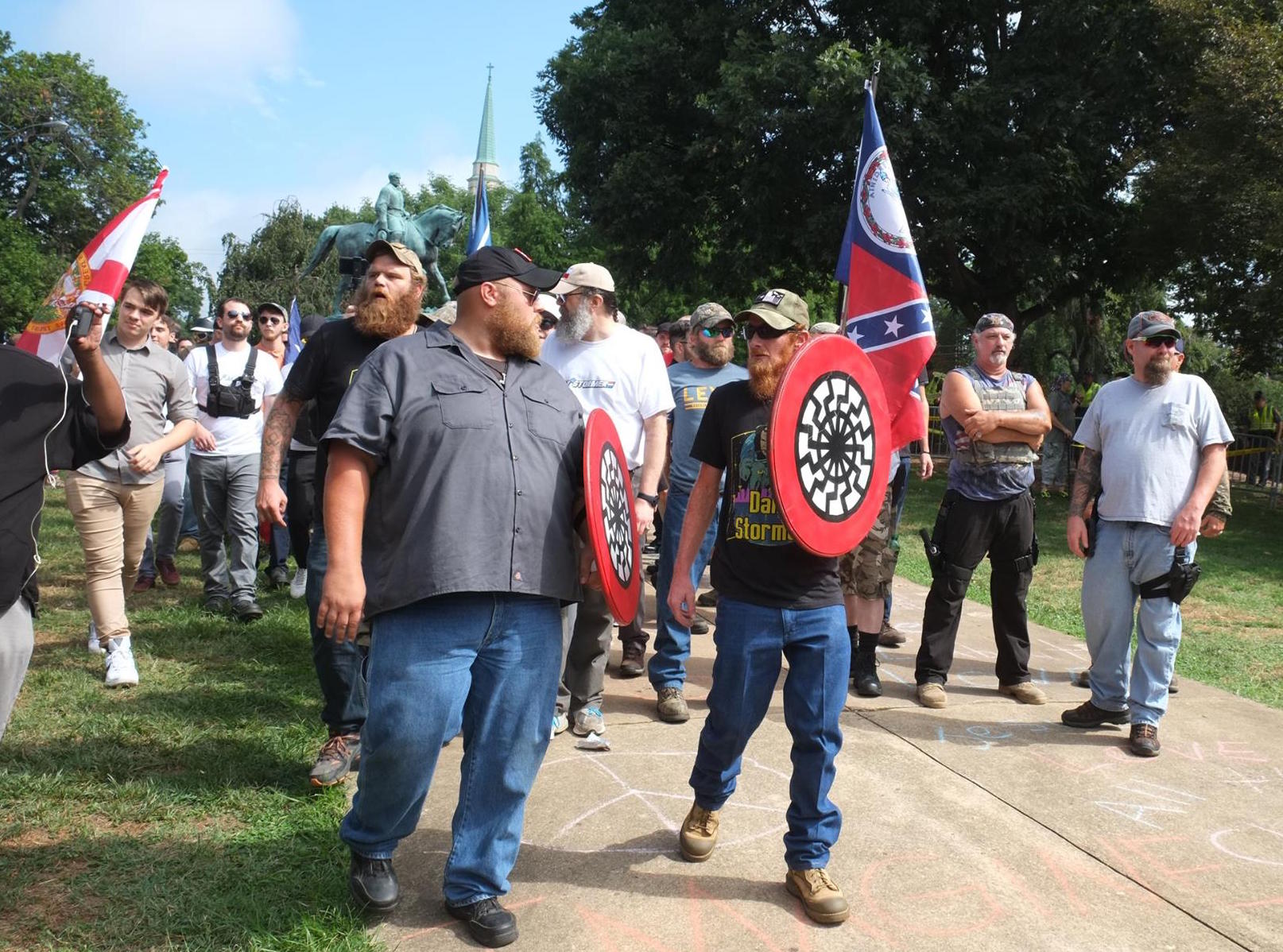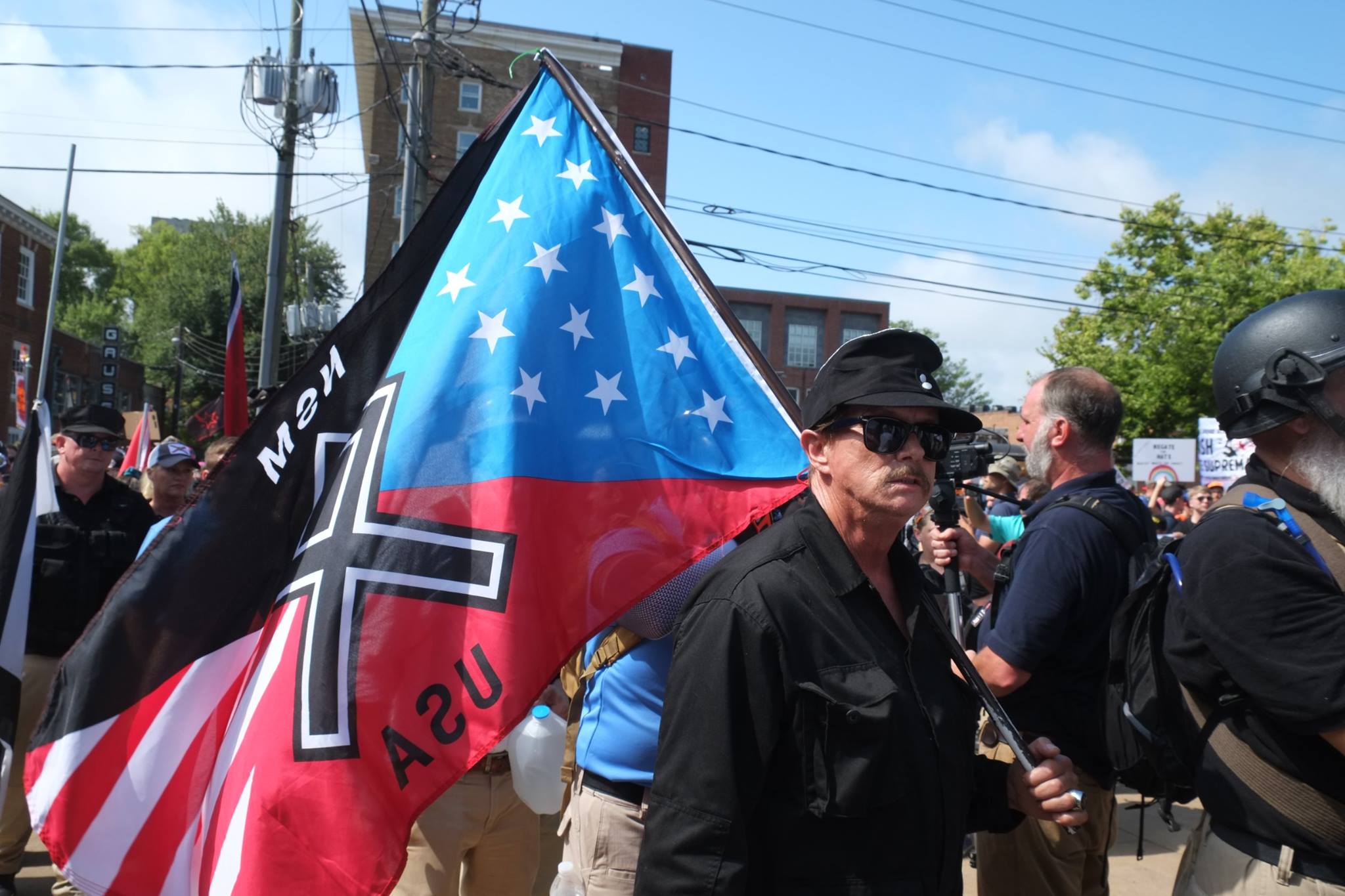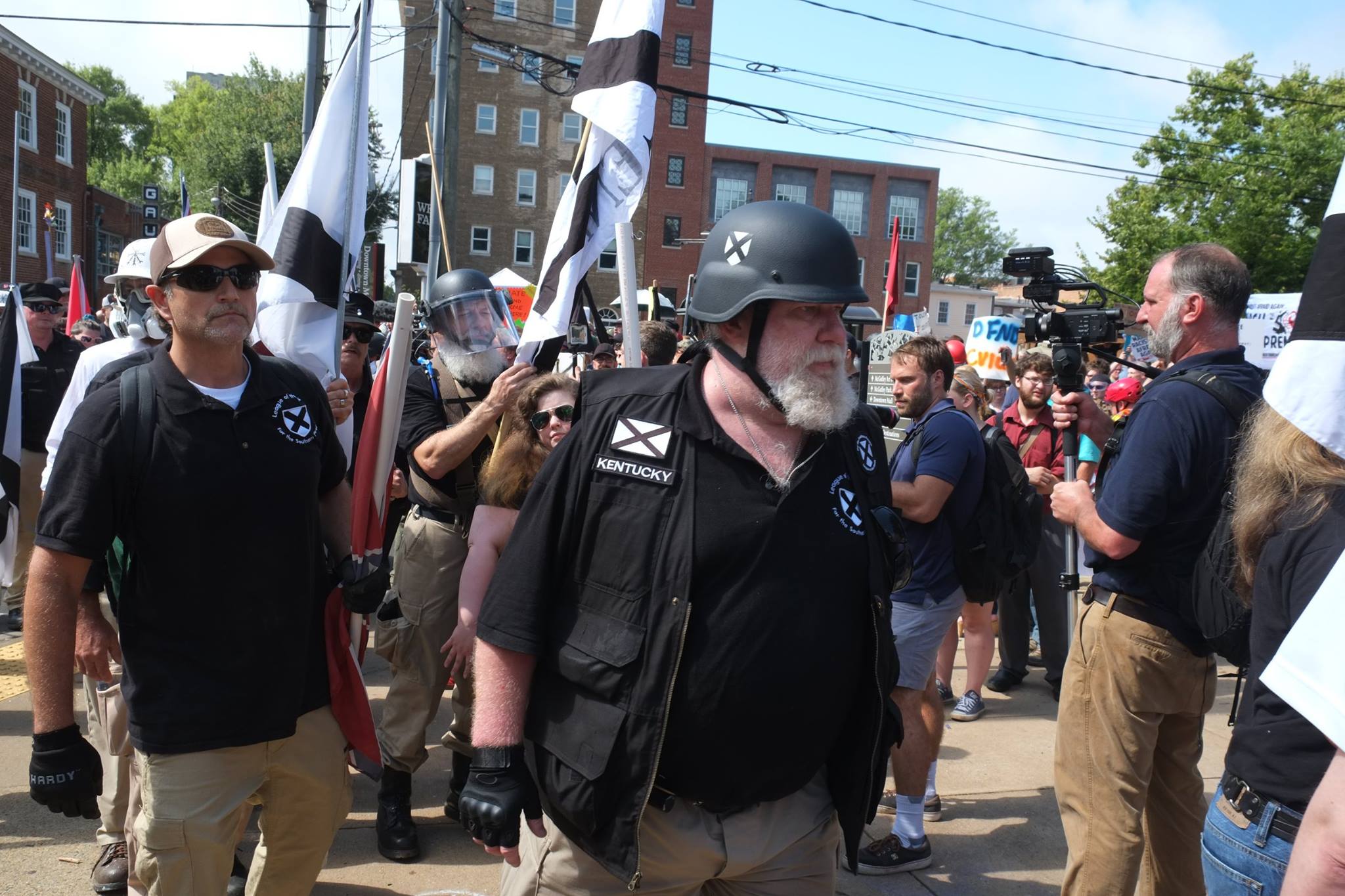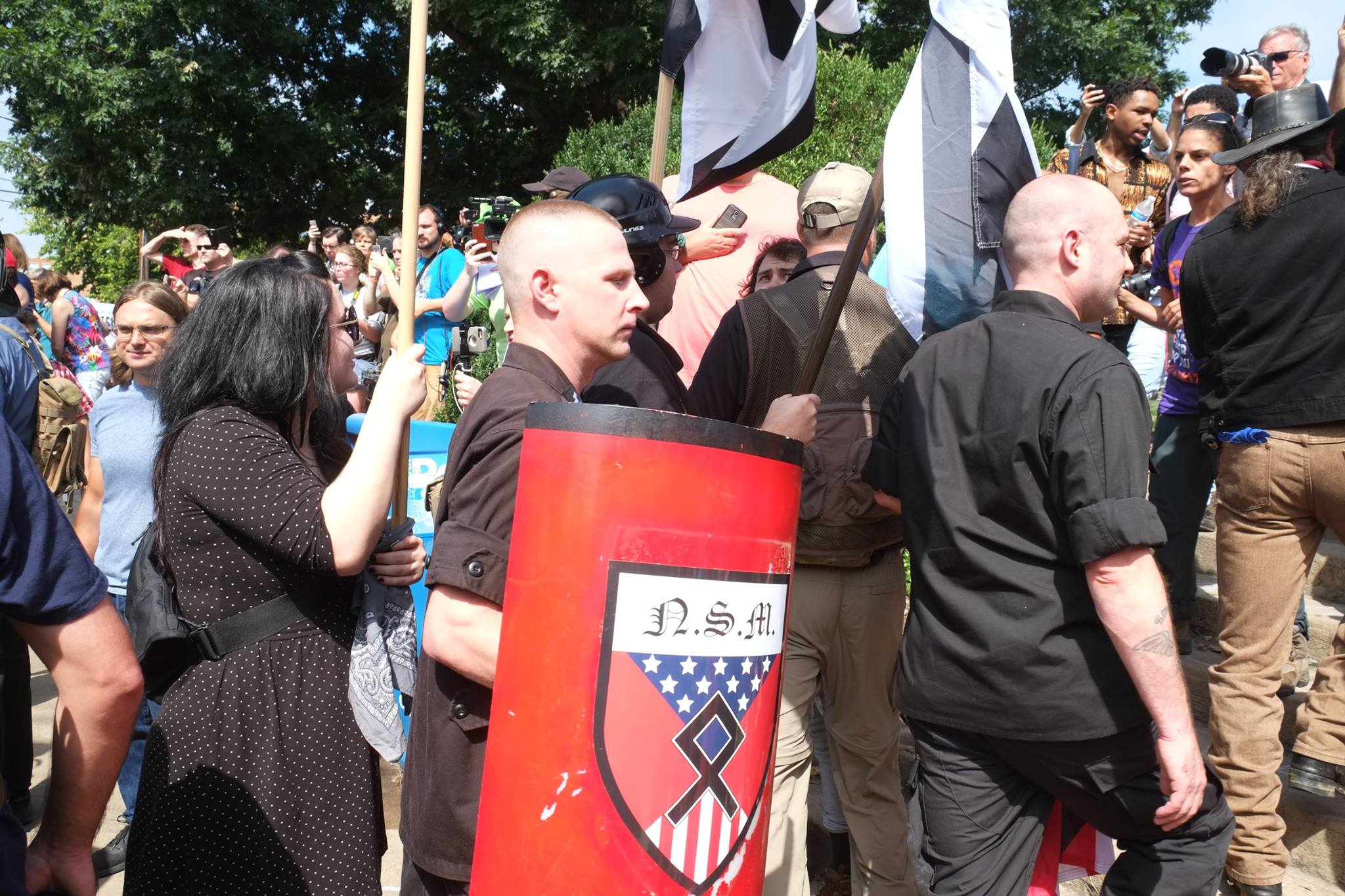
BY BILL WEINBERG | There are actual Nazis marching in streets, with torches and swastikas, terrorizing those who stand to oppose them. It’s the 1930s again, but this time in the U.S.A. What do we do about it?
This question has taken a greater urgency since last weekend’s events in Berkeley, where “antifa” (antifascist) counterprotesters mixed it up physically with “alt-right” protesters. Since then, we’ve seen headlines such as “Black-clad antifa members attack peaceful right-wing demonstrators in Berkeley” (Washington Post), “Violence by far-left protesters in Berkeley sparks alarm” (L.A. Times) and “The Antifa Protests are Helping Donald Trump” (The New Yorker). Ominous reports indicate the F.B.I. and Homeland Security are now referring to antifa as “terrorists.”

Some activists suggest the media reports are distorted, omitting provocation by the right-wing protesters that sparked the violence; others decry undue coverage given to brief clashes amid an overwhelmingly peaceful antifascist mobilization. Others speculate, without evidence, that the Berkeley hotheads were police infiltrators.
On the political left, the debate is polarizing. A majority position (among my friends, at least) holds that Nazis must be physically confronted on their own terms, to the ultimate consequences, and any talk of nonviolence or free speech is naive. This seems to be the emerging consensus of antifa.
A minority view calls for not confronting the Nazis directly, since violence plays into their hands, abetting Trump’s moral equivalism and justifying police-state measures that will be used against us. This is the position of the Southern Poverty Law Center. This vital watchdog group on radical-right activities calls for holding anti-Nazi rallies away from the Nazis — which essentially means ceding control of public space to them.

Worse still was “Saturday Night Live” comic Tina Fey’s hopefully facetious recommendation to stay home and eat cake instead of confronting them.
A smaller minority view calls for understanding that our adversaries are working-class white folk who have been screwed by globalization and ultimately share the same oppressors we do. Such voices advocate reaching out to the Nazis through “dialogue” and “debate,” hoping that we can convert them.
There is a place for dialogue, debate and even cooperation with elements of the grassroots right. I’ve worked in loose coalition around opposing the war on drugs and such issues with right-libertarians and “constitutionalists.” But not Nazis.
There are certain things you do not legitimize with debate, and if slavery and genocide do not fall into that category, I don’t what the hell does.

Since Reconstruction, there has been a general consensus in this country that slavery was bad. Since World War II there has been a consensus that Nazis are bad. And since the civil-rights era, there has been a general consensus that racism is bad (even if this was partly based on denialism about the extent it still existed). The establishment of this consensus comes from the abolitionists, the “premature antifascists” and those who marched with M.L.K.
By embracing Nazis in “dialogue,” we are eroding that consensus, betraying those who struggled to forge it.
Talking or working with the grassroots right is always a tricky proposition. But when real Nazis are unleashing terror in the streets, there is only one appropriate response: opposition.
I do think — or, at least, want to believe — that nonviolence can be an effective tactic, even against Nazis. Primarily, nonviolence serves to keep us clearly on the moral high ground in the battle for public perception. Secondarily, it may serve to win the hearts (or weaken the will) of some of the Nazis with a glimmer of human empathy.

To some extent, the civil-rights movement ceded use of force to federal authorities — as when the National Guard desegregated the Alabama and Arkansas schools. Today the federal apparatus is under the control of our principal antagonist.
We can, however, hope that orders for repression will not be obeyed (just as the military brass may disobey orders to launch the nukes). Defections within the ranks can be seen in the statements from the Joint Chiefs of Staff distancing themselves from Trump’s racism.
I’m critical of Black Bloc tactics in Berkeley, both last weekend and in February, to stop a talk by alt-right mouthpiece Milo Yiannopoulos. But I also believe not one inch of public space in America should be ceded to the Nazis to hold their hate fests unopposed.
I also have little faith that our contemporary culture encourages the self-discipline required for nonviolence.
I’m heartened by Boston three weeks ago. The Nazis were massively outnumbered, and retreated. They were confronted directly, not in the deluded way SPLC advocates. There was no violence. With numbers and moral high ground on our side, there didn’t have to be.



































